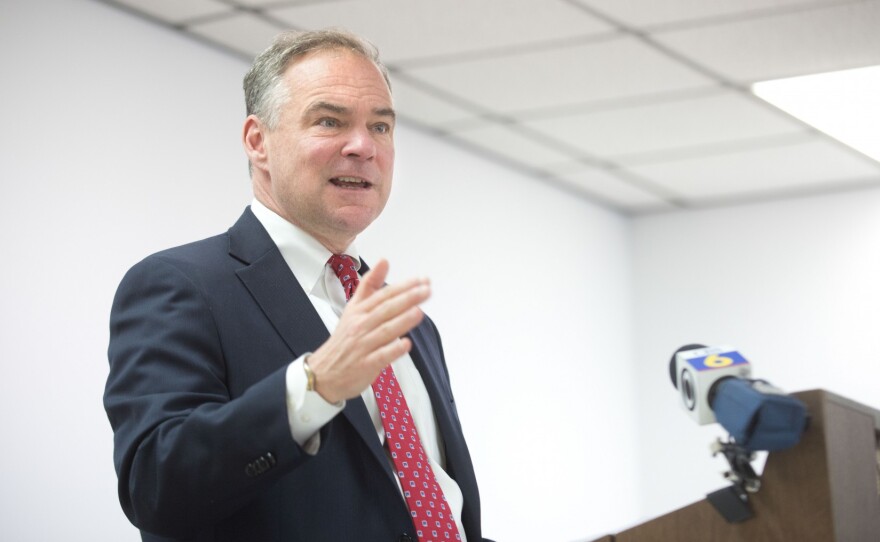Sen. Tim Kaine is reintroducing a bipartisan measure named after Dr. Lorna Breen, a New York City emergency room director who died by suicide in April last year. Breen was spending time with family in Charlottesville after a round-the-clock schedule responding to the pandemic.
The proposal already has some funding laid out in the Senate’s COVID relief bill, which Kaine says he expects to pass this week.
Emily Boucher, a nurse from Abingdon, Va., spoke at a press conference with Kaine earlier today. She said providing and maintaining help is necessary, because healthcare burnout isn’t going to end.
“It’s not a brand new issue, it’s something that was on the rise, and COVID has just kind of poured gasoline on that fire,” she said.
She says healthcare workers deal with the stress from all angles - seeing patients die daily, the possibility of bringing the disease home to family, the constant physical demands, even being forced into the role of counselor to dying patients and grieving families.
“And in addition to that, fighting the misinformation,” Boucher added. “The unbelievable claims, sometimes of the public, basically accusing us of lying about this for some type of personal gain.”
Burnout is associated with more errors in providing care, which experts say just leads to more stress. It has exploded among health care workers during the pandemic.
For Breen, who hadn’t experienced any recorded or suspected mental health battles in her life, it was all too much.
Before going to family, Breen had just returned to the ER from being out with COVID-19. There, she suffered what sister Jennifer Breen Feist, also at the press conference, called a “catastrophic mental health injury.”
Kaine said the Senate’s COVID-19 relief bill includes $140 million towards mental health programs. That includes $80 million to train health care professionals in addressing burnout, depression and related conditions; $20 million to the CDC for an awareness campaign; and $40 million in grants to healthcare providers to build their own programs.
If you or someone you know is in crisis, call the National Suicide Prevention Lifeline at 1-800-273-8255 to speak to a certified listener. Veterans and service members can press 1. To connect to someone by text, send HELLO to 741741. It is free, available 24/7, and confidential.



